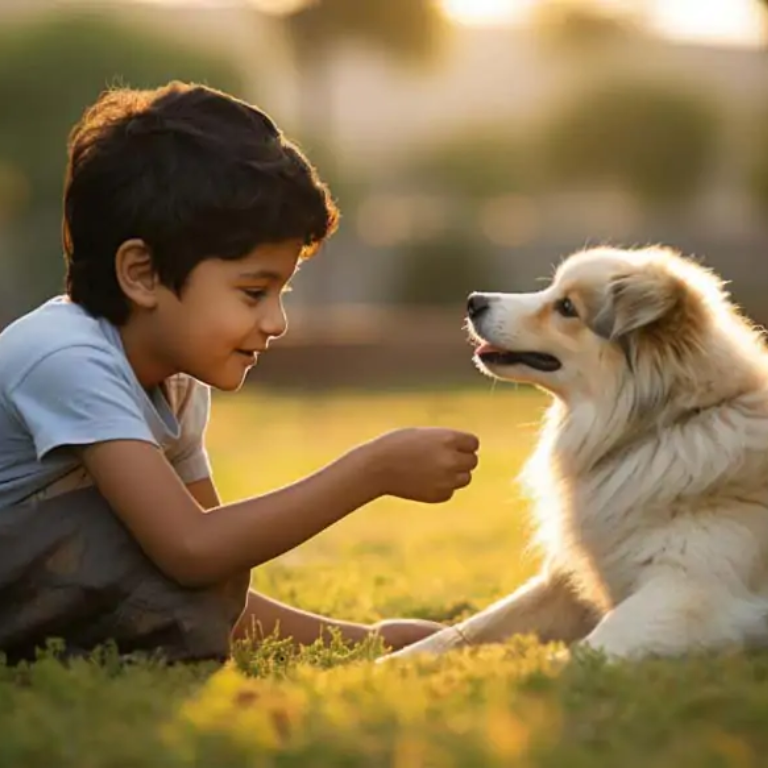How Pets Contribute to a Child’s Holistic Development

It’s no surprise that children are drawn to pets; the love and companionship they receive from furry friends can be profoundly fulfilling and mentally enriching. Neha Jain, an author at Merlinwand—an online platform offering personalized books for children—highlights the significant benefits of having a pet, especially in households with single children. Interacting with pets fosters empathy, trust, responsibility, and understanding in children, enhancing their overall development.
Jain references a study published in the Anthrozoos journal by the RAND Corporation, indicating that children raised with pets exhibit improved health, fewer behavioral issues, increased obedience, higher levels of physical activity, and more stable moods. However, she emphasizes the importance of acknowledging potential risks, such as bites, allergies, or jealousy, and advocates for children’s active involvement in pet care to develop a sense of responsibility and empathy.
Here are some key benefits that children experience when growing up with pets:
Forming Emotional Attachments:
Pets often become focal points for children’s attachment behaviors, fulfilling their emotional needs and providing a secure base for developing relationships. Research suggests that bonding with a pet dog correlates with better adjustment in middle school, laying the foundation for healthy interpersonal connections later in life.
Enhancing Self-Esteem:
Pets fulfill children’s self-object needs, fostering feelings of self-worth, cohesion, calmness, and acceptance. This can be particularly beneficial for children dealing with anxiety, depression, or behavioral issues, as pets offer comfort, emotional support, and reassurance during challenging times.
Promoting Cognitive Development:
Regular interaction with pets accelerates language acquisition and improves verbal skills in children, as pets serve as receptive audiences for children’s babbling and encourage communication. Additionally, pets provide emotional support that enhances cognitive functions such as language, planning ability, and meta-cognition, consequently boosting academic performance.
Alleviating Loneliness:
Pets serve as companions that alleviate loneliness, particularly among adolescents. Studies show that high school students who own pets experience lower levels of loneliness compared to those without pets. While most research focuses on adolescents, the impact of pet ownership on loneliness in younger children warrants further exploration.
In conclusion, the presence of pets in a child’s life contributes significantly to their emotional, social, and cognitive development, fostering empathy, self-esteem, language skills, and resilience. By nurturing relationships with pets, children not only gain companionship but also invaluable life lessons that shape their holistic growth and well-being.





